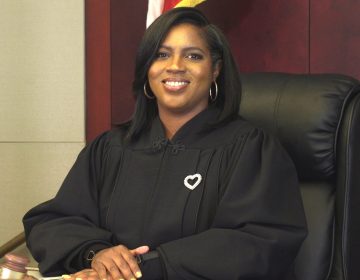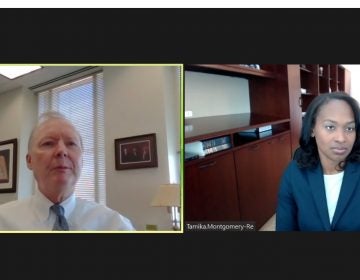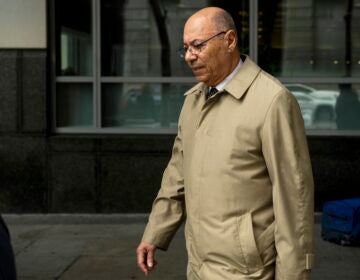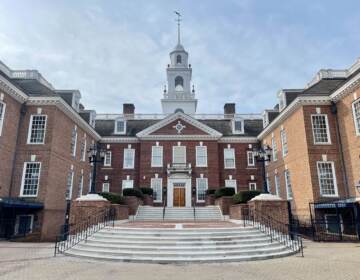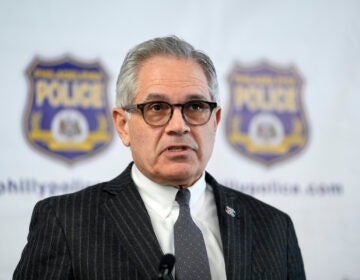Families like ours know that judges exercise tremendous power with limited oversight. Here’s what we’re doing about it
Defense attorneys play an important role in re-imagining community safety. But less attention has been paid to the election of reform-minded judges.
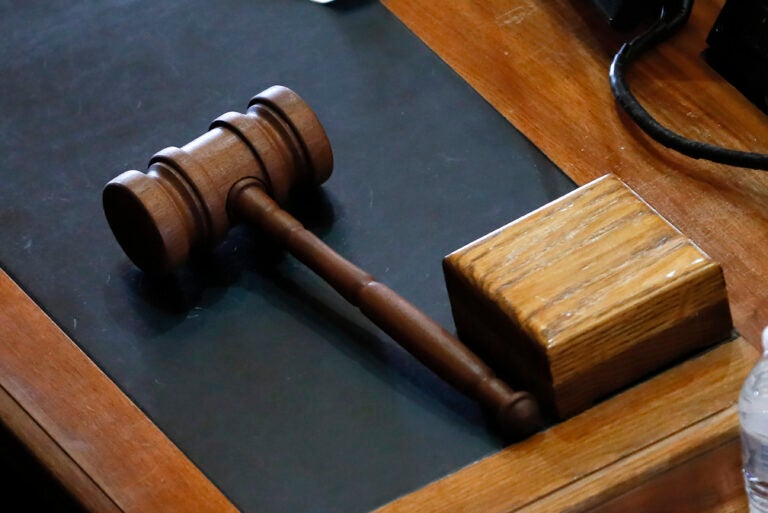
File photo: A gavel is pictured in an AP file photo on Monday, March 16, 2020. (AP Photo/Charlie Neibergall)
District Attorney Larry Krasner’s landslide victory in the May primary has rightly been hailed as a resounding sign of public approval for re-imagining community safety.
What’s received less attention is the election of reform-minded judges.
The election of progressive judges is a testament to the growing reform movement and a signal of where it’s headed as community groups expand their focus beyond policing, prosecution, and prisons to encompass the judicial and legal system.
From his first day in office, Krasner’s reform agenda encountered attacks, not only from the Fraternal Order of Police, but also from judges on the Court of Common Pleas. So, community organizations like ours banded together with other groups in 2018 to form the non-partisan Judge Accountability Table.
Families like ours, who have experience with the system, know that judges exercise tremendous power with limited oversight. Judges decide whether to affirm an eviction, grant custody of a child, and end a person’s freedom — or even their life. While prosecutors, defense attorneys, and juries all play a role, the ultimate outcome of the trial depends on how the judge decides to interpret the law and the evidence before them.
Yet, because voters in low-turnout elections must select a large number of judges without much information, there historically has been limited democratic oversight of these elected officials. Their profound impact on our community is too often hidden from view.
That’s why the Judge Accountability Table set out to research the judicial system in Philadelphia, educate voters about how it works, and work with community members to ensure real oversight and accountability.
Earlier this year, the Judge Accountability Table held a two-day forum with judicial candidates, giving the community a chance to make their own judgments about the judges. At the forum, community members who had been directly impacted by the carceral system were the ones asking judicial candidates the questions.
The forum demonstrated a shift in our communities. More and more Philadelphians want judges who understand the struggles faced by our people. In a community with needs that have been neglected for decades, violence is often a response of desperation, poverty, and trauma. Our community needs people on the bench who understand that healing is communal, not carceral.
Judges, too, are coming around to the idea that a different approach is needed. When asked if anyone should be jailed because they are poor, all the candidates at the forum agreed that cash bail has been weaponized against poor defendants and should be eliminated in most, if not all, circumstances.
Of course, not every judge who brands themself as a “progressive” is committed to a reform agenda. Our organizations — Free the Ballot, Reclaim Philadelphia, and 215 People’s Alliance — also play a direct role in electoral politics and endorse judges who represent our values. This spring, as we visited homes, local pizza joints, and corner stores, we saw again that everyday Philadelphians are right there with us when we connect the dots between the judicial system and their lived experience.
One canvasser from Free the Ballot, KB Blue, was sent to prison as a child of 16. Not yet grown up, without having finished his education, Blue was often forced to spend time in solitary confinement, deprived of books and company. Thanks to fellow prisoners, however, Blue made his own education, reading widely about politics and history, coming to see how deeply broken our prison and political system are. After 46 years behind bars, Blue knew that coming out, he wanted to be involved in grassroots political organizations.
At the doors this spring, in neighborhoods where most politicians never set foot, many folks told Blue “they don’t get involved in politics.” Blue explained from his own experience how politics was already involved with them, as the countless decisions made by politicians impact every aspect of their lives. He urged them to vote, not just for themselves, but to change who is making the judgments that impact their families and the entire community.
After we shared our own stories, we listened. We listened to stories of uncles taken away for years, mothers unable to celebrate a child’s birthday, brothers locked up at the whim of a judge. We listened to people’s ideas about what they wanted to see for our neighborhoods, for our city, what they think we need to build a Philadelphia where each of us has what we need to thrive.
In 2018, we fought an uphill battle and elected just two progressive judges. This year was different because of how our movement has grown. Despite mountains of mailers and hundreds of thousands of dollars spent by the Fraternal Order of Police, community members rejected the “lock ’em all up” mentality. They pulled the lever for change, and eight out of our nine endorsed judges won their races.
As we look to the future, the Judge Accountability Table is hoping to build on its efforts to educate and engage Philadelphians about the importance of judges. During the coronavirus pandemic, a backlog of cases has piled up, but on July 1, all hearings will return to being held in person. The Table is looking to recruit more volunteers to expand our Courtwatch program to meet that post-pandemic reality.
The Table is also hoping to expand our efforts to make the system more transparent to community members. We plan to continue collecting data around trends in bail, sentencing, and judge’s courtroom conduct, and make that research available to the public not only on the web, but through ongoing community forums and teach-ins.
In addition, at Reclaim Philadelphia, 215 People’s Alliance, and Free the Ballot, we already have our eye on upcoming elections. This fall, Philadelphians will have a chance to vote on more than 24 judge retention decisions. Our hope in these races and others is to develop “report cards” so voters have a real chance to hold judges accountable and prevent those who are causing harm from remaining on the bench.
We’re also already beginning to recruit unexpected judicial candidates for next year. We’re talking to lawyers who work with community organizations and have experience working with directly impacted people from the other side of the bench. While there are many qualified lawyers who fit that description, running for judicial positions can be challenging. Lawyers with limited access to money and power need support to take time away from jobs and raise the money needed to mount a winning campaign.
While social change takes time, what we’ve seen is that the passionate calls for justice in the streets have increasing resonance in the communities most directly impacted by violent policing and mass incarceration. A revolution of values is taking place as we ask together: what will help our communities heal and thrive?
Of course, we can only realize our shared vision if we work within our communities to draw on our lived understanding, organize ourselves, and build the power needed to transform the system that’s harmed us into a system that enables us to live free and flourish. But there are lots of reasons to be hopeful that change is on the way.
WHYY is your source for fact-based, in-depth journalism and information. As a nonprofit organization, we rely on financial support from readers like you. Please give today.


